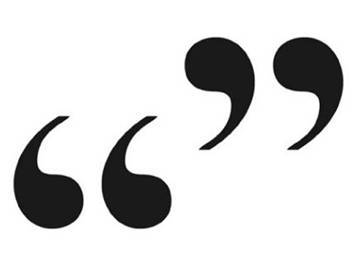Writing Realistic Dialogue
 There are a lot of key things that make a story really great, and one of those things is realistic dialogue. It’s ideal for a character to seem relatable to the reader, and a way to do that is through their speech.
There are a lot of key things that make a story really great, and one of those things is realistic dialogue. It’s ideal for a character to seem relatable to the reader, and a way to do that is through their speech.
One: Keep Characters in Mind
Dialogue can be a big part of characterization, and adding the littlest things that will make your character seem more genuine. In Glass Houses, Trey addresses everyone as, “man.” I also like making his fans refer to others in the same way, so it’s used as a tool of Trey vs. Juliette vibe that I want.
When you’re writing dialogue, keep your characters in mind. All humans don’t speak the same, neither should your characters. Do they stress certain words? Do they have an accent? If you’re not sure about details like this, then you might want to click on this.
Two: Contractions are Your Friend
I’m always irked when reading dialogue and there’s a noticeable lack of contractions. For instance:
“I cannot go to the movies. I am not allowed.”
“I can’t go to the movies. I’m not allowed.”
The second has a more natural feel to it, and it doesn’t make the reader drag through it. Sometimes, contractions shouldn’t be used, but in creative fiction they add a realistic feel to the piece.
Three: Research!
Knowing your time period will help with the dialogue, too. For instance, if your story takes place in a modern time period, your characters probably aren’t going to waltz around speaking like Shakespeare. And on the flipside, Shakespeare isn’t going to be calling his friend, “bro.” Finding the appropriate slang for certain times may take some digging, but it will pay off.
If you’re writing in a different country – like an American writing a British character – do your research. Their incorrect dialogue can push readers away from your characters if they notice the faults. When I wrote Benjamin, I used a probably-not-trustworthy website to translate my Americanisms, which gave it more of an authentic feel than if I just winged it.
As with all things in writing, the littlest details are super important. Dialogue can make or break your characters and the realistic nature of your story, but with a little effort and closer attention it should go seamlessly.
Latest tutorials
-

Outlining a 3 Act Novel with the Snowflake Method
October 31st, 2018 at 04:47am
-

Five Tips on How to Write Exposition
October 1st, 2016 at 10:17am
-

Five Tips for Writing Better Settings
September 29th, 2016 at 10:48am
-

Five Tips on How to Write a Better Plot
September 24th, 2016 at 09:59am
-

Five Tips on How to Write a Good Character
September 10th, 2016 at 10:33am
